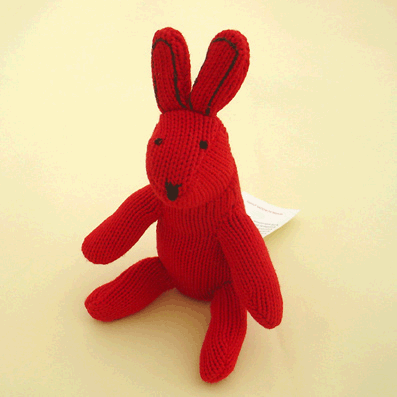
Although New York City has a larger Chinese American population than does San Francisco, the Chinese New Year is a much bigger deal in Fog City than it is in the Big Apple. The Chinese American population in New York accounts for approximately 4.5% of the total population; in San Francisco, it constitutes close to 20%.
Like New York, San Francisco has ethnic enclaves that exaggerate these demographics. I live in a part of the city known as the Inner Sunset, located at the eastern edge of the expansive Sunset District. About half of the Sunset's population is Asian American, mostly of Chinese extraction. In an interview published in the current issue of San Francisco Arts Quarterly (SFAQ), celebrated Bay Area artist Barry McGee remarks that he dislikes the Sunset District because "it's foggy, and there's a big Asian population." The interviewer asks, "You don't like Asians?," and McGee replies, "[...]well it's not that I don't like Asians, but I don't like that many Asians, you know?" I presume that the half-Chinese McGee is joking, but his tongue-in-cheek comment speaks to our species' inborn, tribal orientation.
Curiously, while I'm acutely aware of how "out of place" I am in some ethnic neighborhoods, I've never felt incongruous or unwelcome in predominantly Chinese American communities. There are, of course, significant cultural differences - I'd almost certainly feel homesick and alien were I to live in Beijing or Shanghai for a time - but, unlike McGee, I think the substantial Asian American population is a feather in the Sunset's cap, and I was pleased to see a number of red lanterns and celebratory banners hanging from Sunset awnings yesterday morning.
Maybe, though, there is a more novel reason why I appreciate the Chinese New Year? As a would-be ger (or convert to Judaism), I also observe a new year that's not dictated by the Gregorian calendar. I made my New Year resolutions in early September, during the days preceding Rosh Hashanah, a period that saw no spike in gym memberships.
What is to be made of this hybrid identity of mine, especially in light of our increasingly universalistic aspirations? I'm a straight, white male, and my family tree has a preponderance of English and Scottish Protestants; in other words, like it or not, I was born "the man." Yet I am also, by means of the mystical and psychological process of conversion, a Jew (technically speaking, I'm almost one, mikveh pending). Although most of us associate ethnic identity with skin color or bloodline, ethnicity is by definition a stew of heritage, language, culture, and religion; it is compound. Thus, though I'm only 1/8 Jewish by blood (i.e., genetically or physiologically), I'm able to identify as wholly so (i.e., psychologically).
Because of this rewiring of my identity, I'm ever more appreciative and proud of the diverse makeup of the United States. Many Americans nurture a composite identity (e.g., Italian American, Japanese American, or, less specifically, African American). Although it's crucial that we must prioritize the shared aspect of these respective identities, we should also celebrate the differences. In other words, just as our membership in the family of humankind does not preclude our identifying as part of nations, clubs, or families, American peoplehood does not prohibit membership in particularistic communities, subsets of the greater national identity. Contrary to the well-intentioned, "all you need is love" promises of misguided ideologues, our nation's principal virtue may be it's appreciation for both the universal and the particular.
So, to my many Chinese American neighbors, and to the rest of our experimental nation, cheers to yet another Happy New Year!
Image credit: ripped from Sweety Petey Eco-friendly Baby Toys

No comments:
Post a Comment